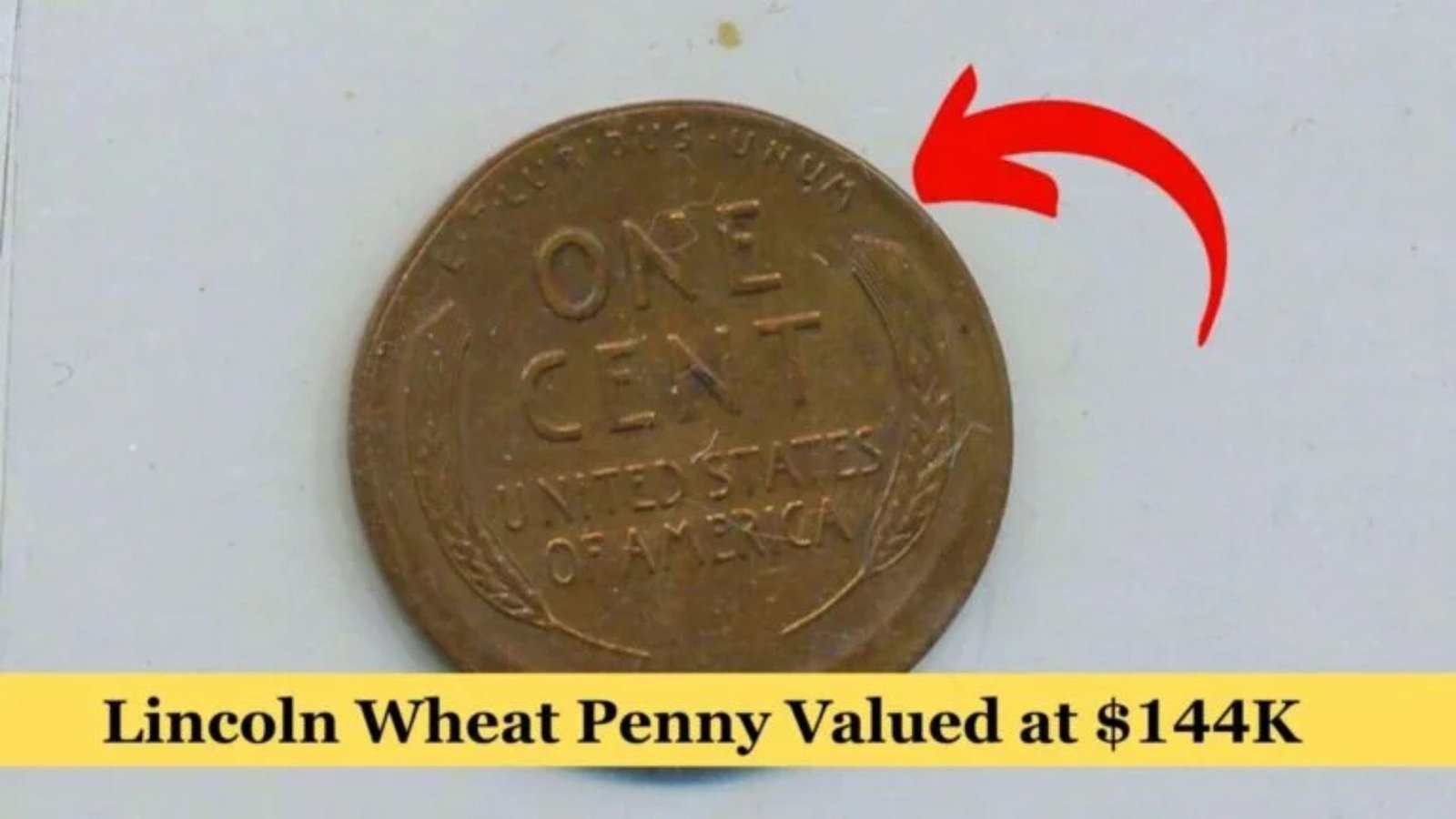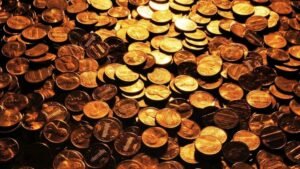VImagine digging through old jars of spare change and spotting a tiny copper coin worth $144,000. That’s exactly what happened with the most valuable Wheat Penny ever sold. This isn’t a fairy tale—it’s the true story of the 1943 bronze Lincoln cent, a rare mistake that collectors chase like buried treasure. In this guide, you’ll learn how a 1-cent Wheat Penny became a six-figure jackpot, why it’s so special, and how to hunt for your own hidden gem.
What Is a Wheat Penny?
The Wheat Penny (officially the Lincoln Wheat Cent) was minted from 1909 to 1958. Designed by Victor David Brenner, it features:
- Obverse: Abraham Lincoln’s portrait
- Reverse: Two wheat stalks framing “ONE CENT”
These pennies were made of 95% copper until World War II changed everything.
The 1943 Bronze Blunder: Birth of the Most Valuable Wheat Penny
In 1943, the U.S. needed copper for war supplies like bullets and wiring. The Mint switched to zinc-coated steel for pennies. But a few bronze planchets (blank coins) slipped into the machines by accident.
Key Facts About the 1943 Bronze Penny
| Feature | Detail |
|---|---|
| Composition | 95% copper, 5% tin/zinc |
| Weight | 3.11 grams (vs. 2.7g steel) |
| Magnetic? | No (steel pennies stick to magnets) |
| Known Examples | Only 10–20 authentic coins |
| Record Sale | $144,000 (Heritage Auctions, 2019) |
Pro Tip: If your 1943 penny doesn’t stick to a magnet, get it checked—it could be bronze!
Why Is This Wheat Penny Worth $144,000?
- Extreme Rarity: Fewer than 20 exist.
- Historical Mistake: A wartime error preserved in metal.
- Condition Matters: The $144,000 coin was graded PCGS AU-58 (Almost Uncirculated).
- Collector Frenzy: High-grade rarities spark bidding wars.
Top 5 Most Expensive Wheat Pennies Ever Sold
| Rank | Year | Error/Variety | Sale Price | Grade |
|---|---|---|---|---|
| 1 | 1943 | Bronze | $144,000 | AU-58 |
| 2 | 1944 | Steel | $115,000 | MS-62 |
| 3 | 1909-S VDB | Low mintage | $108,000 | MS-67 |
| 4 | 1914-D | Rare Denver mint | $98,000 | MS-66 |
| 5 | 1922 No D | Missing mintmark | $90,000 | MS-65 |
How to Spot a Valuable Wheat Penny in Your Change
Step 1: Check the Date
Focus on 1909–1933 (early years = higher value).
Step 2: Look for Key Dates & Errors
- 1909-S VDB: Only 484,000 minted
- 1914-D: Just 1.2 million made
- 1922 No D: Mintmark worn off
- 1943 Bronze: The holy grail
- 1944 Steel: Another wartime mix-up
Step 3: Examine Condition
| Grade | Description | Value Multiplier |
|---|---|---|
| Good (G-4) | Heavy wear | 1x |
| Fine (F-12) | Light wear | 5x |
| Extremely Fine (XF-40) | Sharp details | 20x |
| Mint State (MS-60+) | No wear | 100x+ |
Step 4: Use Simple Tools
- Magnifying glass (10x loupe)
- Digital scale (bronze = 3.11g)
- Magnet (1943 steel sticks)
Real Stories: From Pocket Change to Payday
- 1943 Bronze in School Lunch Money (1957): A teen spent it on candy—later sold for $40,000.
- 1944 Steel in Circulation (2000s): Found in a roll of pennies, sold for $115,000.
“I thought it was junk,” said one finder. “Now it’s my retirement!”
How to Sell Your Valuable Wheat Penny
- Get It Graded: Use PCGS or NGC (costs $20–$100).
- Avoid Cleaning: Polishing destroys value.
- Sell Smart:
- Heritage Auctions (top prices)
- eBay (for lower grades)
- Local Coin Shops (quick cash, lower offers)
FAQs About the Most Valuable Wheat Penny
Is every 1943 penny worth $144,000?
No! Only bronze ones. Steel 1943 pennies are worth 10–50¢.
Can I find one in circulation today?
Unlikely, but 1943 bronze pennies still surface in old jars and estates.




